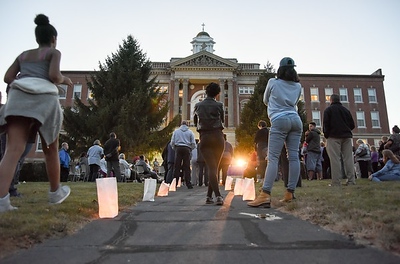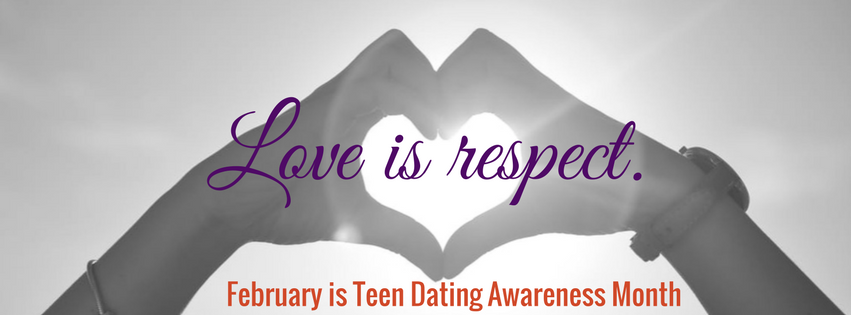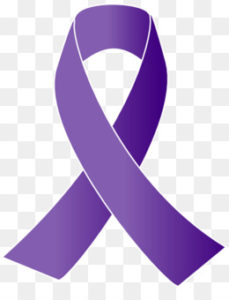
‘Stay Safe, Stay Home’ has little meaning to victims of domestic violence, but there is help in area for those in need
Author: Erica Drzewiecki; New Britain Herald
Published: April 22, 2020
When home is where the hurt is, ‘Stay Safe, Stay Home’ has little meaning.
Luckily, for victims of domestic violence, there are still open shelters and resources available, even during the COVID-19 pandemic.
“We continue to be on the front lines as our service is open and available 24 hours a day, seven days a week,” said Barbara Damon, executive director of the Prudence Crandall Center.
The organization provides emergency shelter, transitional and supportive housing to victims of domestic violence hailing from New Britain and Bristol, and towns in between, including Southington, Plainville, Berlin and even as far as Plymouth.
Staff has remained on-site in Prudence Crandall’s emergency shelter and others working remotely continue to provide counseling over the phone, by video chat and email.
“We’re finding that the greatest increase in need right now has been for help with basic food and supplies and funding to meet monthly expenses,” Damon pointed out. “So many of our folks we serve have either lost a job or lost their childcare and are really struggling right now.”
Families living in Prudence Crandall’s shelter have separate bedrooms and can safely distance themselves. Other survivors have remained in housing at undisclosed locations and some are staying in hotels for the time being.
“This is a time filled with anxiety and stress for all of us, but particularly those experiencing the trauma of abuse,” Damon pointed out. “There is a lot of need for emotional support and counseling at this time.”
Prudence Crandall’s most pressing need right now is financial.
The organization’s annual fundraising dinner was postponed along with all other large group gatherings and events. Unforeseen expenses due to the novel coronavirus have also posed a challenge.
“Every year we rely on the community to fund about 30 percent of our operating budget,” Damon explained. “We need to raise $650,000 to meet our current needs. We need the community now more than ever.”
The center has received donations of face masks and meal deliveries. Monetary donations are strongly encouraged at prudencecrandall.org.
Other agencies that help victims include the Connecticut Coalition Against Domestic Violence (CCADV). CEO Karen Jarmoc was one of several panelists to speak during a virtual conference this week.
When the pandemic began in early March, Jarmoc said, domestic violence shelters were already at 130 percent capacity across Connecticut.
The CCADV runs CTSafeConnect.org, an online resource where victims of violence can seek help. It’s being utilized even more now that victims are forced to be at home, Jarmoc said.
A bright spot in this pandemic: for people who need to file a restraining order, it is now possible online.
Thanks to an April 3 ruling by the Honorary Michael Albis, the state’s chief administrative judge of family matters, restraining orders can be filed remotely at https://jud.ct.gov/remote_restrain.htm.
In this time of crisis, advocates are still available to help 24/7 at CTSafeConnect. All services are confidential, safe, free and voluntary. Call 888-774-2900.
Erica Drzewiecki can be reached at edrzewiecki@centralctcommunications.com.
“Challenge” to Raise Funds to Sustain Life-Saving Services

Earlier this year, the government shutdown impacted vital funding to Prudence Crandall Center, high-lighting the importance of private donations to sustain the agency’s vital services for victims of domestic violence. One local couple has decided to challenge others to join them in making that happen.
The Bright Futures Giving Society is currently comprised of 28 community members who pledge $1,000 a year or more (through monthly, quarterly or annual gifts) over five years, providing a vital foundation of annual support that is used to bridge funding gaps in services agency-wide.
This year’s Celebrating Hope breakfast will be held Friday, May 31st, at the DoubleTree by Hilton in Bristol. The event’s Presenting Sponsor is once again the Petit Family Foundation, which has generously sponsored the agency’s signature fund-raising events for over a decade. For information about sponsorships or the Leflers’ Leadership Challenge, please contact Carolyn Jasper, Development Director, at (860)259-3817 or cjasper@prudencecrandall.org.
To contribute, please click below:
6th Annual Festival of Women’s Voices

The West Hartford Women’s Chorale will sponsor their annual Festival of Women’s Voices on March 30th at 4:30 PM in the Auditorium of Conard High School, West Hartford. This special concert features special guest composer Kathleen Allen, Glastonbury High School Treble Choir, Voce di Coeli Hall High School, Another Octave: Connecticut Women’s Chorus, and West Hartford Women’s Chorale.
This is the sixth “Festival of Women’s Voices” hosted by the West Hartford Women’s Chorale. The festival involves student and adult choirs performing various pieces of music including those of a female composer, who is invited to conduct a workshop with each group prior to the performance.
The proceeds from each Festival Concert are earmarked for an organization that helps women and girls in the Hartford area. This year the recipient will be the Prudence Crandall Center, which has been providing comprehensive services for victims of domestic violence since 1973.
In January 2004, 14 women, who shared a love of music, were inspired to form a women’s chorale in West Hartford, to enrich the local community’s cultural life. Fifteen years later the West Hartford Women’s Chorale is now a group of almost 100 women from all over the Greater Hartford area conducted by Dr. Ethan Nash and accompanied by Barbara Robbins.
From its inception, the Chorale has focused on enriching its members and the surrounding communities through the enjoyment of music. All women who love to sing are encouraged to join the chorale, without requiring previous musical experience. At the same time, this non-audition group performs a variety of challenging classical, jazz, and popular musical pieces, providing a supportive, learning environment for both the chorale’s members and its audiences at several community events, as well as its own stand-alone concerts.
The Chorale also supports musical education in the community by providing an annual scholarship to a graduating senior from the area’s Public Schools. It has provided young artists performance opportunities, as well as raising funds for charitable organizations.
For more information visit www.WHWChorale.org
Read More
Mary Kay Foundation
Thank you to The Mary Kay Foundation for our $20,000 grant! These funds will help us continue to maintain critical services and programs for domestic violence survivors in Connecticut!
The Mary Kay Foundation was created in 1996 and its two-fold mission includes funding women’s cancer research and ending domestic violence. Over the course of more than two decades, The Mary Kay Foundation has awarded more than $78 million to women’s shelters and domestic violence service providers, as well as cancer research programs and related causes throughout the United States. To learn more about The Mary Kay Foundation and its mission, visit marykayfoundation.org or call 1-877-MKCARES (652-2737).
Read More
FILL THE VAN
For the third year in a row, Papa’s Chrysler Dodge Jeep RAM is having a ‘Fill the Van’ donation drive to support Prudence Crandall Center! The outpouring of support from their staff and customers has been amazing, resulting in the delivery of a van-load (or two!) for our families just in time for the holidays.
The donations, gifts and household essentials that are collected help our families get established as they begin new lives, free from violence. Many of the essentials are also used to welcome victims and families into our emergency shelter every year. Too often, individuals and families fleeing an abusive home leave most of their belongings behind. And for low-income families facing a time of crisis, the holidays can be particularly stressful. These donations let them know that the community supports them, and they are not alone, as they make that brave first step towards a safe and brighter future.
The donation drive will run until December 17.
Make sure to follow us on Facebook to see the big delivery arrive on December 18th!
Read MoreDress Down & Go Purple to support Domestic Violence Awareness Month
You can spread the word to prevent domestic violence!
Join our “Dress Down and Go Purple” campaign and help raise awareness at your school, work, or place of worship. We’ll provide you with brochures, posters, warning signs cards, and handouts.
You pick the day and encourage everyone to wear purple!
Let’s get talking and take a stand – together, let’s end the violence!
For information contact 860-259-3820 or mcarlson@prudencecrandall.org
Read More
CE Electrical Charity Golf Tournament to benefit Prudence Crandall Center
2nd Annual
CE Electrical Charity Golf Tournament to Benefit
Prudence Crandall Center
October 11, 2018 • Lyman Orchard Golf Course
Join us for a day of bogeys, mulligans, & maybe a hole-in-one!
Check-in – 10:30 am
Shotgun – 12:00 pm
Dinner – 5:00 – 7:00 pm
Player Levels:
General Level – $10,000
Major Level – $5,000
Colonel Level – $3,000
Captain Level – $1,500
Private Level – $175.00 per golfer
Sponsorship Opportunities:
Lunch Sponsor – $2,500
On Course Beverage Sponsor – $1,500
Player Cart Sponsor – $1,500
Bar Sponsor – $1,000
Practice Green Sponsor – $500
Driving Range Sponsor – $500
Flag Sponsor – $500
Tee Sign Sponsor – $250
Dinner Ticket Only – $100
If you would like to sponsor, donate a raffle prize or need more information,
please contact Paul Morneau at 860-304-5670 or email pmorneau@ce-electrical.com

Help be the change CT needs
Connecticut has a serious problem with Dual Arrests, Bill SB466 is being considered to address this issue and we need your support!
411 on Dual Arrests:
A dual arrest occurs when both the victim and their abuser are arrested at the scene of a domestic violence incident. Connecticut’s intimate partner dual arrest rate is 20%, which is more than twice the national average of 7% (these are incidents specifically involving spouses, exes, dating partners, and individuals who have a child in common). This has been a 30 year, statewide challenge for Connecticut. This trend cuts across diverse socio-economic communities through rural, suburban, and urban settings.
Dual arrests have both short- and long-term consequences for victims, families, and the criminal justice system:
- Decreases victim safety – When a victim is dually arrested, it has a chilling effect on that victim’s willingness to call the police for help in the future. This makes the victim much less safe moving forward.
- Financial consequences – The victim is now thrust into the criminal justice system as a defendant and may need to hire an attorney, miss work to attend court dates, or hire childcare to attend court dates.
- Additional trauma for children – When children see the parent they identify as the “true victim” arrested, they often develop a similar distrust of police and the criminal justice system.
- Hinders prosecution – Dually arrested victims have little incentive to cooperate with the prosecutor because they themselves are facing prosecution. A dual arrest also raises “reasonable doubt” for defense attorneys who can point to the inability of law enforcement to determine what truly happened.
- Overburdens courts – According to the CT Judicial Branch, family violence cases make up 1/3 of the criminal docket. Thousands of these cases include dual arrests, potentially needlessly adding to an already congested court system, impacting its administration and costing more money.
Here is what you can do to help!
Email Your Legislators
It is important to email your legislators and urge their support of this bill. It is best not to send bulk emails to legislators but to email them individually.
Co-Sponsor – Be sure to ask your legislators to co-sponsor the bill! Having a broad list of co-sponsors helps to demonstrate support for the bill and makes it easier to get the bill called for a vote on the floor.
Submit a Letter to the Editor
You can submit a letter to the editor to your local paper.
Use Social Media
Here are some sample social media posts that you can use to urge support. Be sure to check and see if your legislators have social media accounts and tag them in the post! Also, please be sure to tag CCADV so that we can share your posts with our followers, which includes several legislators. CCADV social media profiles: Twitter – @CTCADV, Facebook: @CTCoalitionAgainstDomesticViolence. You can also tag Prudence Crandall Center: Twitter: @PCC_CT, Facebook: @prudencecrandallcenter.
Did you know? In CT, about 20% of intimate partner violence incidents result in a dual arrest. That’s more than twice the national average of 7%. It’s time for a change! CT should adopt a dominant aggressor law. #PassSB466 #Change #DualArrestCT @Rep/Sen____ @CTCADV @PCC_CT
Victims who are arrested in a dual arrest are less likely to call the police for help in the future greatly diminishing their safety. It’s time for a change! CT should adopt a dominant aggressor law. #PassSB466 #Change #DualArrestCT @Rep/Sen____ @CTCADV @PCC_CT
Children who witness both parents being arrested suffer additional trauma and may develop a distrust of the criminal justice system. It’s time for a change! CT should adopt a dominant aggressor law. #PassSB466 #Change #DualArrestCT @Rep/Sen____ @CTCADV @PCC_CT
Here is a link to Find Your Legislators. Use this to find legislators based on your mailing address.
Read More
The time has come for Change
Domestic Violence Advocates Release Report,
Call on State to Enact Change that Reduces Dual Arrest
-New CCADV report shows Connecticut dual
arrest rate twice national average-
Hartford, CT – Citing an intimate partner dual arrest rate that is more than twice the national average, Connecticut Coalition Against Domestic Violence (CCADV) today released a new report, Collective Opportunity for Change: Decades of Dual Arrest in Connecticut, and urged systemic collaboration to address and reduce this serious problem.
“The time has come for change,” said Karen Jarmoc, chief executive officer, CCADV. “In Connecticut, when a victim of intimate partner violence seeks help from the police, twenty percent of the time she or he will also be arrested along with their abuser. Our state has struggled with this challenge for more than 30 years.”
Said Jarmoc, “the information we have gathered over the past seven months has demonstrated that Connecticut’s challenge with dual arrest is statewide, with 87 of 106 law enforcement entities demonstrating a dual arrest rate that is double or more than double the national average of 7%. This is unacceptable and I know Connecticut can do better.”
A dual arrest occurs when law enforcement arrests both parties at an intimate partner violence incident (note: intimate partner refers to spouses, former spouses, individuals who are dating, or individuals who have a child in common). Connecticut has a mandatory arrest law for all incidents of family violence for which law enforcement finds probable cause. Expected to provide the appropriate response when established in the late 1980s, the mandatory arrest law has seemingly resulted in the unintended consequence of a high dual arrest rate since its inception. There is no one system to blame for this situation. Various stakeholders, including law enforcement, are simply doing their jobs and adhering to the existing structure of Connecticut’s family violence arrest law.
“I cannot stress enough the devastating impact that a dual arrest can have on a victim of domestic violence,” said Barbara Damon, CCADV board member and executive director of Prudence Crandall Center, which provides shelter, court advocacy, counseling, prevention, transitional and permanent housing programs for domestic violence victims living in New Britain and the surrounding central Connecticut region. “Imagine what it would be like to finally summon up the courage to reach out for help or to call the police during an incident when you feel your life is in danger, only to end up being arrested yourself. What are the chances this victim will ever reach out for help again? Far too often, a dual arrest is putting victims in this situation and basically removing their safety net going forward.”
This project, which was guided by multiple criminal justice and advocacy stakeholders, confirmed that the impact of dual arrest is far-reaching. For victims, their journey just begins when they are arrested and entered into the criminal justice system as a defendant. The financial impact is immediate with long-term consequences for the stability of the family – they will likely need to hire an attorney, take time off of work to attend court, pay for childcare to attend court, and potentially be left with a criminal record.
Data gathered through the project also demonstrates that dual arrests create compression within the criminal justice system. Family violence cases account for one-third of all criminal court cases in Connecticut and over 20% the intimate partner arrest cases are dual arrest. Meanwhile, the majority of individuals arrested as part of an intimate partner dual arrest are screened by the court as being at a low to moderate risk for reoffending. There is an opportunity to understand what resources within the criminal justice system might be repurposed if Connecticut did not have such a high dual arrest rate.
No less than eight studies on Connecticut’s dual arrest rate have occurred over the past 30 years, all with similar results to this latest project. There are barriers, such as structural limitations within the law, liability concerns and the need for additional, specialized training, guidance and administrative support that must be addressed if Connecticut is going to bring its dual arrest rate in line with the rest of the country. To that end, CCADV outlines the following recommendations in its report:
- Consider structural modifications to laws governing (a) family violence arrest policies and related police liability and (b) training across systems to reduce Connecticut’s dual arrest rate.
- Develop a universal and standardized training curriculum for use across all of law enforcement and other relevant stakeholders to include court officers, prosecutors and advocates. The curriculum design should be comprehensive and establish sufficient attention to adequately cover the complex issue of domestic violence.
- Establish a new approach to family violence data collection and reporting requirements across systems so that any policy change can be measured for its efficacy.
- Strengthen all systems with training that speaks to the unique needs of domestic violence victims around trauma, children, substance use, mental health, and culture.
- Leverage Connecticut’s Lethality Assessment Program to more affirmatively develop distinct approaches in dual arrest situations.
Click here to view the complete report.
Contact: Liza Andrews
860.282.7899
After Hours: 860.919.9707
landrews@ctcadv.org
###
Connecticut Coalition Against Domestic Violence, Inc. is a membership organization made up of the state’s 18 domestic violence agencies. Help is available to victims 24 hours a day, 7 days a week. Each agency offers free services to victims including a toll-free hotline, safety through shelter, counseling and support groups, and by assisting in securing a restraining order. If you or someone you know needs support, call the statewide free and confidential hotlines at 888-774-2900 (English) or 844-831-9200 (Español) to be connected to your local domestic violence agency. For more information about CCADV visit us online at www.ctcadv.org.
Read More

Teen Dating Violence Awareness Month
Teen Dating Violence Awareness Month
Irene Mackey, Development Intern
February is Teen Dating Violence Awareness Month! While we are eager to share the importance of this month, the prospect of teen dating violence is one that is all too real for many young people today. Unfortunately, if you are old enough to date, you are old enough to potentially suffer from domestic violence.
Dating at a young age can be a wonderfully awkward experience. Between the ages of 14-18 dating finally starts to feel tangible. Hopes are high that you will meet someone nice, smart, who you have a lot in common with. Dating is something that’s very important to many high school and college students, and we all dream of one day marrying our high school sweethearts. Realistically speaking, it doesn’t always end up this way. But looking back, most have fond memories of their younger days and relationships.
However, this isn’t true for everyone. In fact, according to The Bureau of Justice and Statistics, and Intimate Partner Violence in the United States (2004) “Girls and young women between the ages of 16 and 24 experience the highest rate of intimate partner violence, almost triple the national average”. These numbers are the very harsh reality. Violent behavioral issues often start as young as age 12, long before our brains have fully developed, but just a few years before we usually start dating. The University of California San Francisco reported that among students between the ages of 15-20 who reported at least one violent act during their dating relationship, 24% experienced extremely violent occurrences such as rape or the use of weapons against them.
Young men and women aren’t always equipped with the right resources and information to help themselves if they are in a violent relationship. It can be difficult to fully grasp that you might be in trouble, how to get out of the relationship, or who to talk to if you need advice. That’s where we come in, at the Prudence Crandall Center we offer resources that will help you to understand that you are not alone, that there are other alternatives, and that you are not a victim, you are a survivor. We have a 24-hour helpline that is there to help people just like you. If you are in need of speaking with someone, we have certified Domestic Violence Counselor available, as well as access to our confidential, emergency shelter. We are here to make you feel heard, and to make you feel safe again.

